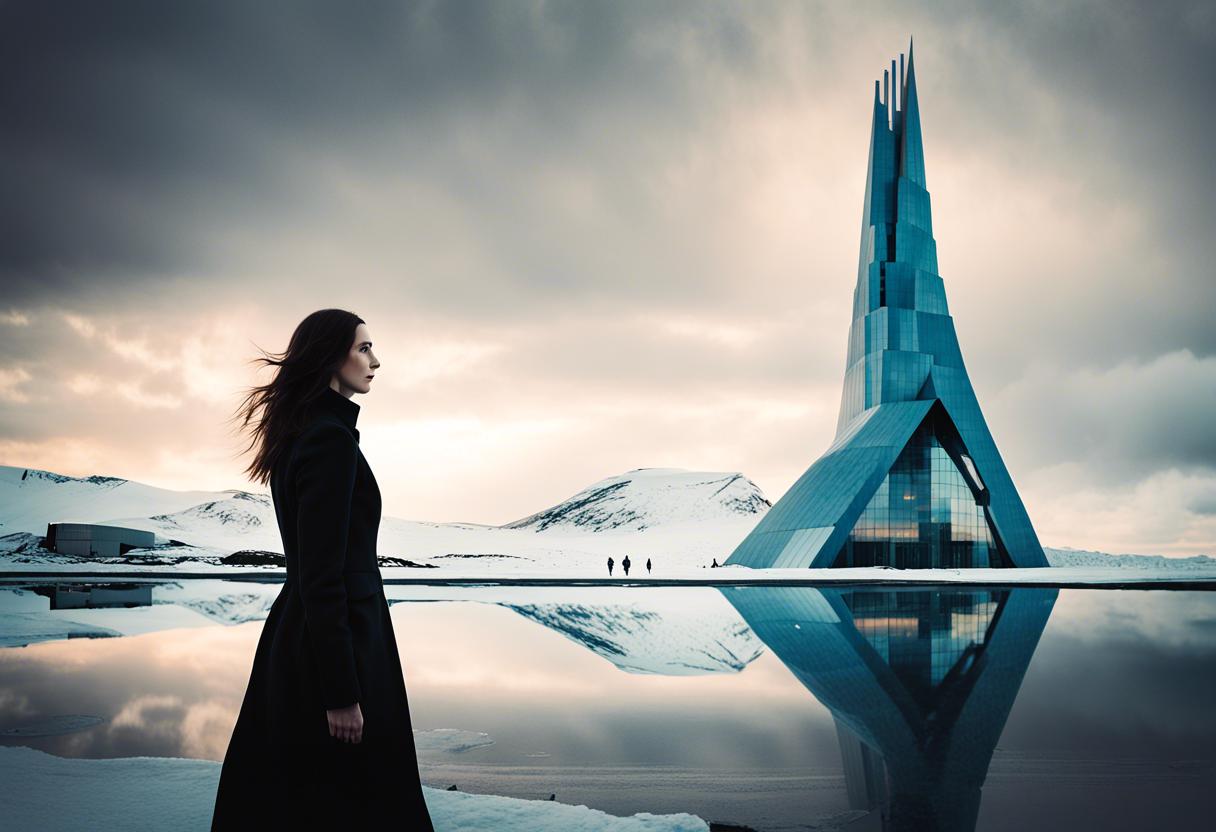Halla Tómasdóttir, a feminist businesswoman who co-founded an investment fund alongside musician Björk during the 2008 economic crisis in Iceland, is set to take the reins as the nation’s president on Thursday. Earning slightly over a third of the votes in the elections held in June, she emerged victorious from a heavyweight contestant list which included the outgoing Prime Minister, Katrín Jakobsdóttir.
Tómasdóttir, who once enlightened a TED talk audience about infiltrating finance with “feminine values”, replaces Guðni Th. Jóhannesson, a popular president relinquishing his position following an 8-year tenure. Previously, Tómasdóttir held the top position at The B Team, a non-profit initiative co-founded by Sir Richard Branson, helmed Iceland’s chamber of commerce, and participated in creating the now defunct financial services firm, Auður Capital. This will be her second attempt to secure the presidency, having made her first bid eight years ago.
At 55, Tómasdóttir centred her campaign around artificial intelligence, tourism, and the effects of social media on psychological health, saying that the electorate ‘voted with their hearts’. “Generational equality matters to me. The causes I’ve championed throughout my campaign are driven by my desire for the younger generation to inherit a society that provides them opportunities at least equal to what we’ve had,” she expressed to mbl.is, an Icelandic news portal.
Yet, Tómasdóttir found herself in a controversial spot for appearing in a social media post made by a car dealership where she purchased an electric vehicle. Despite clarifying that she was unaware of the photo being shared and that the discount received was not for publicity purposes, she nonetheless faced backlash.
In a departure event hosted on Tuesday at Bessastaðir, the presidential residence, outgoing president Jóhannesson paid tribute to 300 workers who partook in the development of defence barriers and other infrastructural projects on the Reykjanes peninsula. This was done in response to the chain of volcanic eruptions near Grindavík. Earlier in June, he hosted a public viewing of Bessastaðir.
Following the republic’s establishment in 1944, Tómasdóttir is set to become Iceland’s seventh president. She will be the second female to assume the position after Vigdís Finnbogadóttir claimed the title of the world’s first democratically elected woman president in 1980.
The official proceedings will commence with a religious ceremony at the Reykjavík Cathedral, which will then be succeeded by an oath-taking ceremony in the adjacent Icelandic parliament. Here, Tómasdóttir will pledge her commitment to the role before delivering a speech to her fellow countrymen and women.
The inauguration, set to kick off at 3.30pm local time, will have in attendance past presidents, parliament members and media representatives. It will also be projected on public screens for wider viewing.
Although Icelandic presidents are elected leaders, they are largely considered ceremonial figureheads. Nevertheless, they provide important symbolic representation for the nation’s approximately 400,000 citizens, especially in light of the recent geological disturbances.
In a recent discussion with The Guardian back in February, Jóhannesson remarked, “We are still dealing with the situation.’’ He went on to explain how land near Grindavík is demonstrating signs of imminent volcanic activity. From his previous experience, he anticipates the magma lurking below the Earth’s surface to soon find its way to the top.

